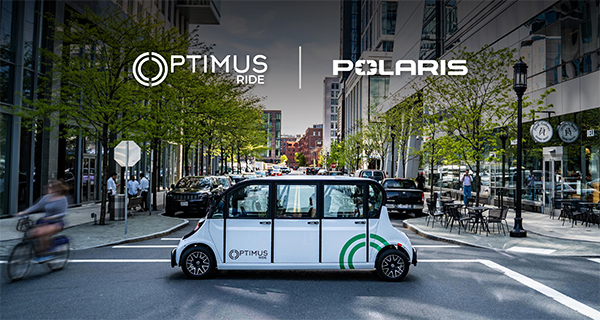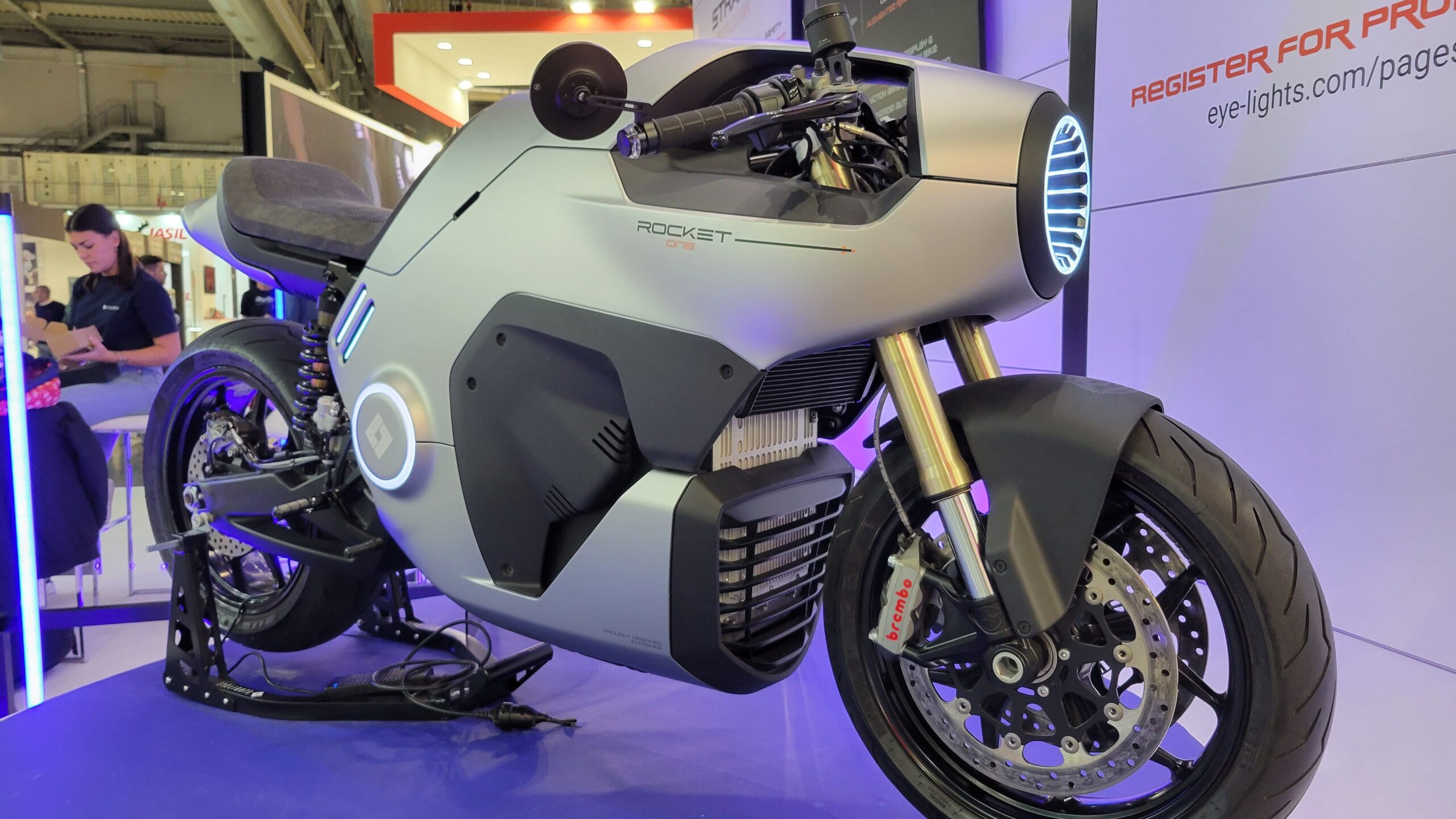Optimus Ride, Polaris announce partnership to create fully autonomous GEM electric vehicles
Optimus Ride and Polaris have announced a partnership to bring fully autonomous Global Electric Motorcar (GEM) vehicles to market. Under this joint development agreement, an exclusive line of Polaris GEM electric low-speed vehicles (LSVs) will be manufactured to fully integrate Optimus Ride’s autonomous software and hardware suite direct from the factory for deployment nationwide on streets in residential communities, corporate and academic campuses, and other localized environments. The partnership builds upon an investment Polaris made last year in Optimus Ride.
Optimus Ride and Polaris will work together over the next two years to bring these new fully autonomous vehicles to market by the second half of 2023. Once development is complete, the two companies will partner to deploy the driverless vehicles at sites across the country.
Together, Optimus Ride and Polaris Commercial – a division of Polaris – have set out to solve a real mobility problem through autonomous vehicle technology. In many environments, cars, vans and buses play inefficient roles in mobility, creating unnecessary pollutants, costs and safety concerns. Right-sized, all-electric, fully autonomous GEMs are a safe, cost effective and sustainable solution. In fact, Optimus Ride has already successfully completed more than 75,000 rides with Polaris GEM vehicles over the last two years across deployment sites throughout the country, demonstrating significantly lower transportation investment, enhancing the rider experience and doing it with established LSV safety benefits.
“Expanding our partnership with Polaris accelerates our pursuit to transform personal mobility by delivering on-demand, autonomous transportation services to communities across the country,” said Optimus Ride CEO Sean Harrington. “Polaris is the ideal partner to bring these vehicles to market with their established leadership in the LSV space, ability to quickly scale production and their deep knowledge of and experience in urban mobility. We are excited to formally commit to transforming our mobility services to a fully autonomous experience.”
Autonomous mobility services provide shorter passenger wait times and travel times, improved vehicle utilization and occupancy, extended coverage hours with greater flexibility, verifiable reduction in GHG emissions and reduced parking requirements for new developments. And with the recent launch of the Opti Ride app, Optimus Ride provides a comprehensive mobility service complete with scheduling services through its app and enterprise platform.
“As a leader in their industry, Optimus Ride is helping to shape the future of transportation with its turnkey autonomous mobility service and its focus on safety, reliability, convenience and sustainability. We share these priorities and, building off our equity investment from last year, Polaris is pleased to take our partnership to the next level by co-developing autonomous GEM vehicles,” said Keith Simon, Vice President and General Manager of Polaris Commercial. “We are committed to working together to promote the widespread adoption of autonomous GEM vehicles across the country. This partnership will bring trusted, safe and fully autonomous rides into the everyday lives of people on campuses, in cities and in communities for years to come.”










Polaris must be receiving a block grant for developing yet another autonomous vehicle. Most people don’t trust computer controlled vehicles which are not bound to a track of some type. There is just too much opportunity for variation to rare its ugly head and creating a risk to both humans and private property. In a world accelerating hatred via Hegelian dialectics. Its easy to understand how one bent upon destruction via war in antithesis would take advantage of such a platform as their method of delivering a terrorist attack.
Where its obvious we need methodologies to reduce the volume of traffic in cities (where emissions are the absolute worst), autonomous vehicles are not the answer, as they only consolidate the emissions and transfer the congestion onto a different platform. As long as there are millions of people attempting to access a small area from 9am to 5pm there will always be the issue of congestion, regardless of the vehicle platform. It ludicrous to think that somehow the creation of a vehicle platform which requires massive electric infrastructure, somehow will magically reduce emissions. The only possible reason for attempting to create an autonomous vehicle platform is control, aka government controls over how individuals travel.
The problem with cities is concentrated volume. Therefore, concentrated volume is what needs to change. If we have learned anything from this recent pandemic, it’s that employees don’t need to travel into a city to sit in an office for 8 hours per day, and that directly addresses concentrated volume. The other focal point which would address concentrated volume is timing, not everyone needs to be in a specific place by 9am… There are after all, 24 hours in a day.
If folks like Polaris want to help, create a vehicle that can provide transportation, which does not rely upon paved roadways. Imagine that environmental improvement.